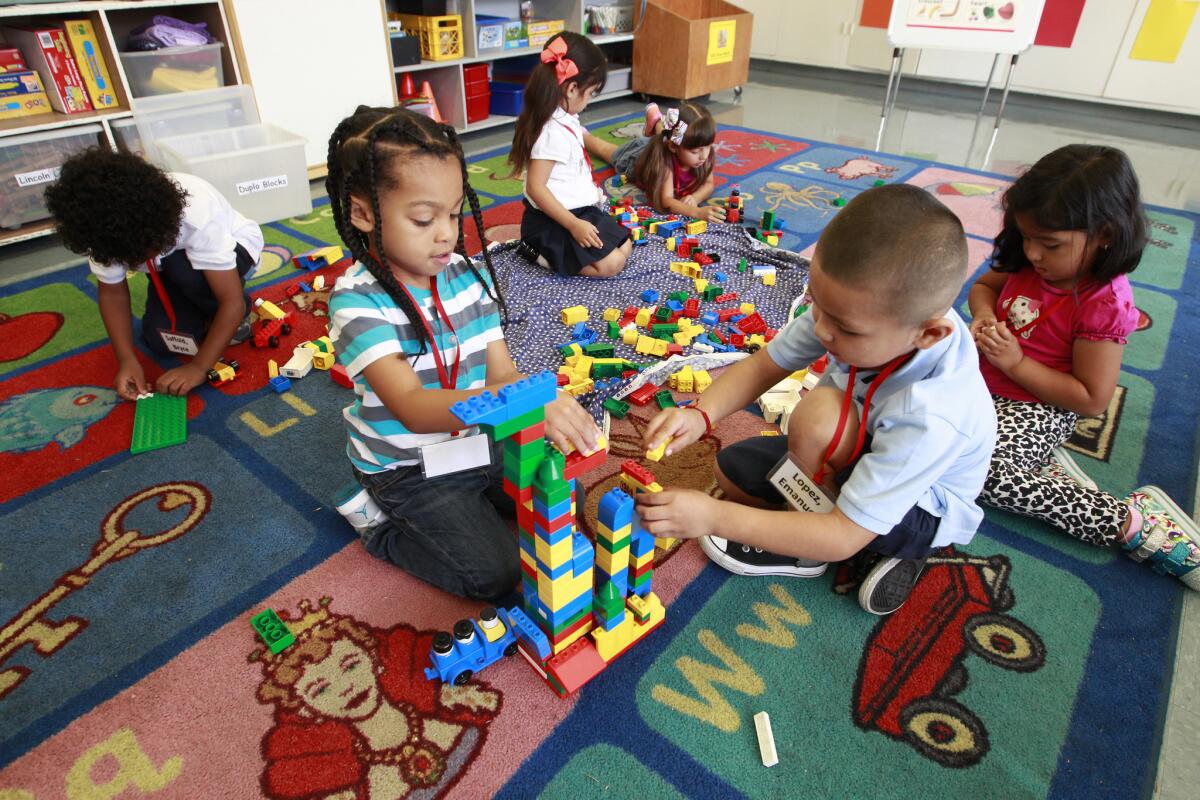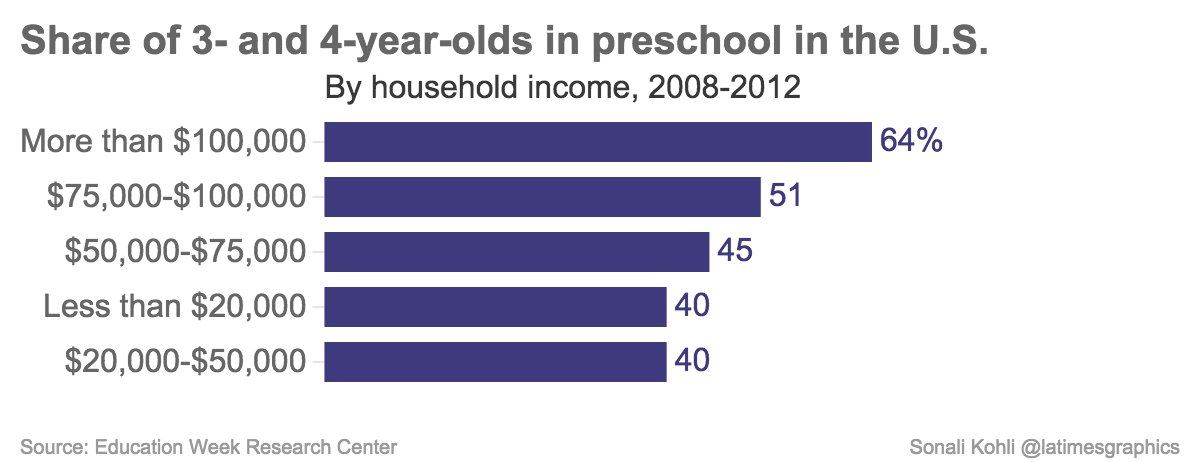The plan to get every California kid into preschool

- Share via
A report timed to influence this week's early education budget hearings in Sacramento calls on California to spend significantly more money on preschool and child care.
Written by a group of academics, former policymakers, researchers and business executives brought together by the nonprofit advocacy group Common Sense, the report calls for universal child care and preschool, as well as the creation of a single online portal where parents can easily navigate the spectrum of child-care options.
The plan would require at least $5 billion in tax money, its backers say.
Common Sense is an offshoot of Common Sense Media, a nonprofit that vets and ranks television content for children. It was founded by James Steyer, a Stanford political science professor and the brother of billionaire Thomas Steyer, a hedge fund manager-turned climate change activist, whom many observers see as a likely candidate for political office.
According to the report, there are now at least 18 public programs administered by at least 11 governmental departments for kids 5 and younger.
Children's experiences in their first five years, including child care, education and healthcare, can influence brain development, future academic performance, economic outcomes and health risks, the report notes.

Research has shown that high-income families are more likely to send their children to preschool in part because they can afford costly, private and often more rigorous programs.
The state requires schools to offer transitional kindergarten to children who will turn 5 between Sept. 2 and Dec. 2. Districts may also offer expanded transitional kindergarten to younger 4-year-olds, which the Los Angeles Unified School District does for some low-income children, English learners and foster youth.
It would cost more than $5 billion a year on top of what the state currently spends to provide every child age 5 and younger in the state access to preschool and child care of the same quality as current offerings, said Craig Cheslog, vice president of California policy for Common Sense.
See the most-read stories this hour >>
That's not enough to make all the changes the group is suggesting.
The report also recommends improving preschool and child care through better training and standardized lesson plans to make sure children are learning the building blocks of language and critical thinking skills and that they're ready for the growing demands of kindergarten.
Such higher-quality education for every child would cost a total of $8 billion to $9 billion more a year than the state spends now, Cheslog said.
That is a substantial price tag, said H.D. Palmer, California Department of Finance spokesman. "We will certainly evaluate their input."
Gov. Jerry Brown has emphasized the need to maintain a balanced budget in anticipation of the next recession.
Brown is proposing to spend significantly less than the group has proposed. His January budget calls for a change that would consolidate three child-care programs into a $1.6-billion early education block grant.
The report does not explore how the state could pay for its wish list, but James Steyer, the chief executive, says that his organization is determined to figure out where the money could come from. A spokeswoman said the group intends to raise and spend up to $15 million over the next five years campaigning on its issues, including early education.
An effective evaluation of the report's recommendations would require Common Sense to provide more details, says Katharine Stevens, an education researcher at the American Enterprise Institute, a conservative think tank. Stevens recently published a review of pre-kindergarten studies and found that not all programs are as effective as oft-cited initial research suggests.
High-quality programs could work, she says, but the wrong programs could turn into "huge, expensive public systems that you're trying to fix."
Reach Sonali Kohli at Sonali.Kohli@latimes.com or on Twitter @Sonali_Kohli.
MORE EDUCATION NEWS
Op-Ed: It's time to move beyond the 4-year degree
Is your high schooler sleep-deprived? Buckle up for bad news
Sign up for Essential California
The most important California stories and recommendations in your inbox every morning.
You may occasionally receive promotional content from the Los Angeles Times.








